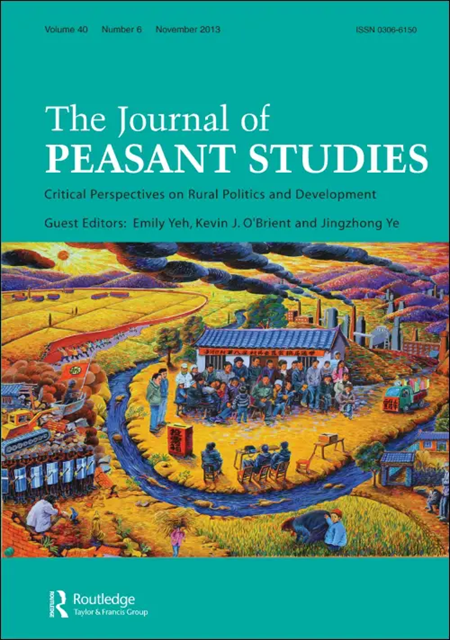Re-purposing the master's tools: the open source seed initiative and the struggle for seed sovereignty
IF 4.8
1区 社会学
Q1 ANTHROPOLOGY
引用次数: 157
Abstract
‘Food sovereignty’ must necessarily encompass ‘seed sovereignty’. Corporate appropriation of plant genetic resources, development of transgenic crops and the global imposition of intellectual property rights are now widely recognized as serious constraints on the free exchange of seeds and the development of new cultivars by farmers, public breeders and small seed companies. In response, an Open Source Seed Initiative (OSSI) has been launched in the United States to apply legal mechanisms drawn from the open source software movement to plant breeding. An open source license is a tool constituted by the provisions of contract law. It is a tool of the master inasmuch as the structure of the legal system has been designed to facilitate the activities of the dominant stakeholders in the overarching social formation. This paper assesses the problematics of re-purposing such a tool by examining the issues that have been raised in OSSI's efforts to develop its licenses and to transmit its sense of their potential to prospective allies. Through an examination of the expressed positions of La Vía Campesina and Navdanya on the nature of ‘seed sovereignty’, the compatibilities and disjunctures of OSSI's stance with those of potential allies in the food sovereignty movement are assessed.重新利用大师的工具:开源种子倡议和种子主权的斗争
“粮食主权”必须包含“种子主权”。企业占有植物遗传资源、开发转基因作物和在全球强加知识产权,现在被广泛认为是严重限制了农民、公共育种者和小型种子公司自由交换种子和开发新品种。作为回应,美国发起了一个开源种子倡议(OSSI),将开源软件运动中的法律机制应用于植物育种。开源许可证是由合同法条款构成的工具。它是主人的工具,因为法律制度的结构旨在促进总体社会形态中占主导地位的利益相关者的活动。本文通过研究OSSI在开发其许可证和向潜在盟友传达其潜力意识的努力中提出的问题,评估了重新利用这种工具的问题。通过考察Vía Campesina和Navdanya对“种子主权”的性质所表达的立场,评估OSSI的立场与粮食主权运动中潜在盟友的立场的兼容性和分歧。
本文章由计算机程序翻译,如有差异,请以英文原文为准。
求助全文
约1分钟内获得全文
求助全文
来源期刊

Journal of Peasant Studies
Multiple-
CiteScore
10.50
自引率
17.60%
发文量
99
期刊介绍:
A leading journal in the field of rural politics and development, The Journal of Peasant Studies (JPS) provokes and promotes critical thinking about social structures, institutions, actors and processes of change in and in relation to the rural world. It fosters inquiry into how agrarian power relations between classes and other social groups are created, understood, contested and transformed. JPS pays special attention to questions of ‘agency’ of marginalized groups in agrarian societies, particularly their autonomy and capacity to interpret – and change – their conditions.
 求助内容:
求助内容: 应助结果提醒方式:
应助结果提醒方式:


